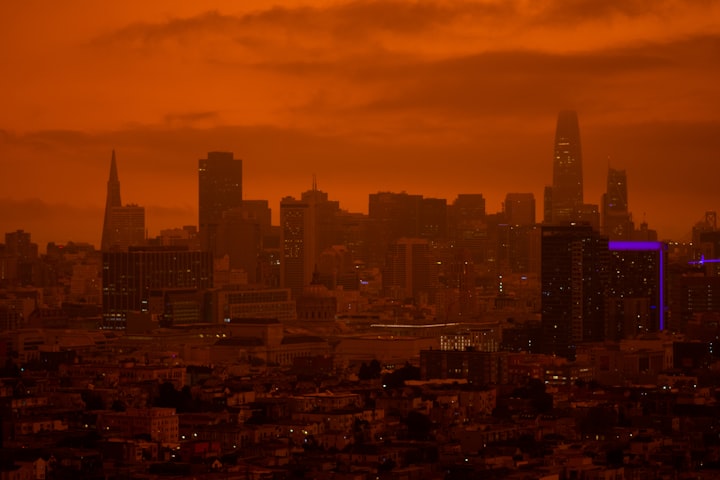I’m almost finished with the first draft of a book titled How to Stop Feeling Afraid, in which I use all my experience as a high and middle school disciplinarian to show how nearly all aberrant behavior has its roots in fear. Why did that guy call you names? He’s afraid. Why did your girlfriend snub you in public? She’s afraid. Why were you robbed, threatened, hurt, dissed, cut off in traffic? All, all (except for the sociopath) because that person’s fear was powerful enough to overcome their natural human tendency to get along with others.
Hate is always, ALWAYS the violent outward projection of fear. When we see this, we can easily see how hate groups are, gangs of cowards, terrified of a changing world. Islamic terrorists or American white nationalists, or German fascists, they are deep down the same person, so scared of the world that they feel a compulsion to cause fear in others. People who are controlled by fear use fear to try and control others. And this, this is where anti-hate protestors get it tragically wrong.
To put complex psychology, sociology, and brain biochemistry into a simplified nutshell, young people become radicalized when they feel powerless and alienated, and get a sense of power and belonging from radical hate groups. When we hate on the Nazi, the Nazi gets recruits because nothing brings people together like being part of a victimized group. Consider how Christians in America constantly try to portray themselves as victims even though they are by far the dominant culture. This phenomenon is pervasive. People love to identify with the victim, especially when the stakes are low and there is no actual suffering.
The other major factor in radicalization (and yes, I am talking about American white nationalists and “alt-right” members as radicalized) is the creation of the monster. When a three-year-old is confronted with a scary interpersonal situation, sometimes they roar like a monster. When a three-year-old does it, of course, it’s cute, but when a young adult does it, they do a Nazi salute. Essentially, terrified little boys try desperately to turn themselves into big scary monsters in the hope that the result will be that people fear them more than they fear people. All too often we allow it to work.
Recently in Boston around 100 white supremacists showed up for a rally, surrounded by 20,000 anti-hate demonstrators. People around the country celebrated how “love wins,” but another way to look at that event was that only 100 pseudo-Nazis scared a city so badly that 20,000 people stopped what they were doing and came to fight. What most people believe was love winning, was in reality a recruiting tool for hate. Want to make yourself into a monster that people are so scared of that they show up in odds of 200 to 1? Want to be powerful enough that all you have to do is throw a sheet over your head and entire cities mobilize?
To truly combat hate around the world Americans must do two things:
A: First they must take every opportunity to trivialize, ridicule, condescend to, and laugh at all terrorist and hate groups. Terrified little boys who want to become monsters will not join a group that the world snickers at and makes fun of. Obviously, we must still protect ourselves from the terrible violence these people are capable of, but we can be watchful AND ridicule. While we must be vigilant, we must also ostensibly ignore. The only thing more powerful than 20,000 showing up would be nobody showing up, just casual passers-bye snickering behind their hands at the silly frightened children playing dress-up. While to the victims of terrorist attacks the event is often catastrophic and I do not seek to trivialize death and destruction or the human toll of such events, it is also important to realize that on a world scale and compared to actual war or even major natural calamities, terrorism and hate are something akin to a four-year-old stabbing an adult with a pencil. Of course, we should prevent it, but it should not terrify us!
B: We must elevate and celebrate love as an act of courage and power. Somehow violence has become equated with courage, but that is simply a myth. In Tim O’Brian’s famous book The Things They Carried (standard reading in many high schools across America), he talks about the most cowardly thing he ever did was go to war. He was more scared of being labeled a coward than he was of death. For many people there are a great many things far more terrifying than violence. Nazis would much rather hit you with a board than appear vulnerable. We must begin to celebrate acts of kindness as acts of courage. Giving a dollar to a homeless person shows that not only are you not scared of the homeless person, but you also have faith you won’t need that dollar. Revealing your weaknesses means that you are so confident that you know even knowledge of all your vulnerabilities means others cannot hurt you, or even more importantly that you do not fear being hurt. Voting against a border wall means you are not scared of Mexicans, and taking a seat next to a woman in a burka means that you are aren’t afraid of Muslims either.
If we point out in awe and wonder the courage of love and kindness, then young people who need to appear powerful in a scary world will stop wearing Nazi uniforms, and they will start being kind to strangers.
About the Creator
David Bulley
History teacher, writer, storyteller






Comments
There are no comments for this story
Be the first to respond and start the conversation.